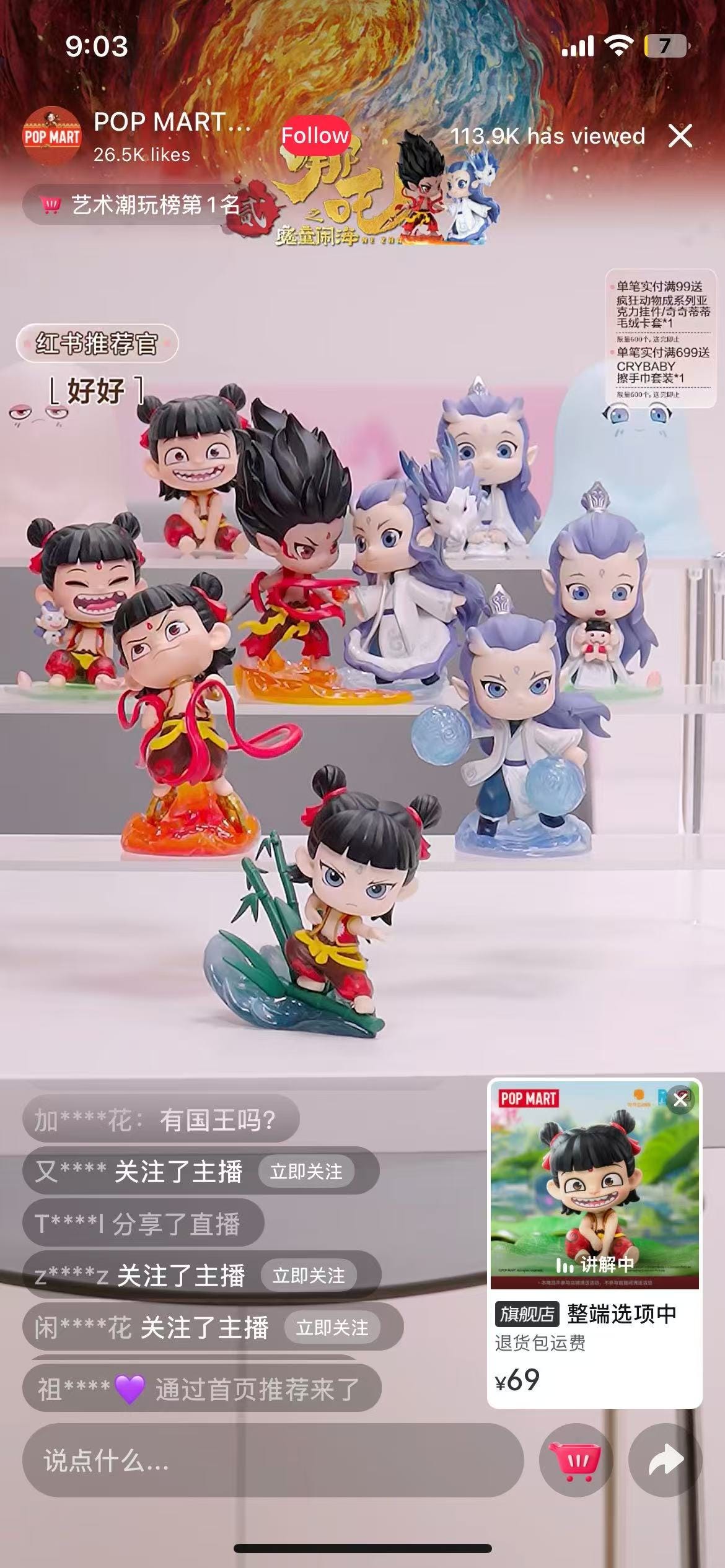A few things on my radar #11
Porsche; Domino's Pizza, Apple and Pop Mart
👋 Hello hello! Thanks for reading The Momentum. Subscribe for free to receive new posts and support my work!
Porsche
Porsche's 2024 sales slumped in China
While other regions experienced growth, Porsche saw a 28% decline in China sales during 2024, highlighting the ongoing weakness in the world's largest car market that continues to affect German automakers.
Throughout the year, the company had cautioned about challenging market conditions in China, where more low-priced domestic electric vehicles were undercutting European manufacturers. The country's economic slowdown and struggling property market have further dampened Chinese consumers' appetite for luxury vehicles.
Besides, China's luxury market ( beauty, fashion, jewlry, watch and leather goods) declined by 18% to 20% in 2024, marking the end of a period of "exponential growth", with sales expected to remain flat in 2025, consultancy Bain and Company said at the launch of its latest 'China Luxury Report' on Tuesday.
Porsche probably didn't do anything wrong — The shrinking of high-end consumption just reflects the trend that China's core consumer base that previously drove these luxury brands is diminishing.
According to Hurun data, as of Jan 2023, China saw declines across wealthy households: those with assets of 6 million yuan decreased by 0.8% yoy, those with 10 million yuan fell by 1.3% you, and those with 100 million yuan dropped by 3.8% yoy.
However, even when the economy rebounds—assuming you believe in China's economy—these Western luxury brands, especially premium car makers, won't easily reclaim their former glory by winning back wealthy Chinese customers.
Let's face it, domestic EV cars like Xiaomi SU7 Ultra, NIO ET9 and Li L9 are actively entering the luxury sector with more powerful features, superior driving experience, and sleek design. If they successfully establish their premium image while Western brands fail to maintain their aura of exclusivity, they will gradually erode Western luxury cars' market share. By then, even price cuts won't help these lagging Western brands win back their fans.
Take Starbucks, for example—a cautionary tale. After years of complaining about China’s macroeconomic environment and low-cost competitors, Starbucks suddenly realized it couldn’t keep up with its Chinese rivals in terms of quality and customer experience—even after lowering prices when the whole industry is on a rise. Now, the company is paying the price for its past complacency.
Donimo's Pizza
Domino's Pizza to close 205 underperforming stores globally while expanding in China
After five consecutive years of losses, Domino's China achieved profitability in the first half of 2024.
Domino’s Pizza China have already surpassed 1,000 stores in mainland China in 2024, rising to third place in Domino's international market store count. Moreover, they plan to open approximately 300 to 350 new storesannually in 2025 and 2026.
On February 7th, Domino's Pizza announced it will close a total of 205 underperforming stores globally.
According to a Frost & Sullivan report, China's pizza market size was 37.5 billion yuan in 2022, and is expected to double to 77.1 billion yuan by 2027, with a compound annual growth rate of 15.5%.
While many are still debating how to get Chinese consumers to embrace authentic pizza, Domino's R&D team in China is already ahead of the game.
Believe it or not, Domino's Pizza in China isn't serving traditional Italian or American-style pizzas — they've reinvented their menu by offering multiple fusion dishes and local flavors on pizza dough. Each creation incorporates ingredients that resonate with Chinese palates, even providing unique crust fillings options like taro paste and salted egg yolk—flavors and textures that have left local customers astonished.
Apple
Apple teams up with Alibaba to create AI features for Chinese users, which is a positive signal for Apple's sales in China
Screenshot — Jack Ma appeared on Xianyu on February 11th, the same day The Information announced Apple and Alibaba's partnership - he looks happy, but for some reason he's gained weight - probably from resting too long.
According to The Information, citing sources with direct knowledge of the decision, Apple has partnered with Chinese internet and e-commerce giant Alibaba Group to roll out artificial intelligence features in China.
Apple began testing AI models from leading Chinese developers in 2023 and initially selected Baidu as its primary partner. However, the collaboration hit roadblocks when Baidu's development of models for Apple Intelligence failed to meet Apple's standards.
Apple recently evaluated AI models from multiple Chinese companies including Tencent, ByteDance, Alibaba, and Deepseek. While Deepseek was ruled out due to limited resources, Apple found most models struggled with understanding user context. Alibaba was ultimately selected due to its extensive consumer data from e-commerce and payment services.
Some analysts argue that AI features won't significantly boost iPhone sales, pointing to Europe's growth surpassing that of the U.S. last quarter despite the absence of Apple Intelligence (except for a brief period in the U.K. in December). However, this perspective overlooks the "national pride" factor at play in China.
Today, many Chinese consumers view domestically developed AI products as national champions, much like Huawei. This sentiment could generate significant interest in iPhones equipped with local AI technologies—whether Qwen, DeepSeek, or DouBao—as long as Apple avoids partnering with Baidu, a company widely despised by Chinese users for its unethical advertising practices.
Pop Mart
Pop Mart's “Ne Zha 2” toys surge in popularity following film's box office triumph
Pop Mart is on hot streak in intellectual property (IP) merchandising as consumers snap up its toys based on China’s highest-grossing Ne Zha 2.
This success mirrors Pop Mart's earlier triumph with Labubu toys—toothy yet adorable elves that captured millions of Asian fans' hearts, including K-pop star Lisa from Blackpink.
“We expect Pop Mart to become one of the go-to partners for global major IP owners that intend to monetise and extend IP popularity through IP toys,” Morgan Stanley analysts noted in a report.
Though Pop Mart has proven adept at leveraging existing IPs, such as The Avengers, Harry Potter, and Ne Zha, their artist collaboration IPs (including both self-owned and exclusive IPs), such as Labubu, seem to lack strong storytelling elements. However, a truly successful IP business relies on exclusive assets that marry visually striking designs with rich, emotionally resonant narratives — an area where Pop Mart has yet to fully develop its own capabilities.






